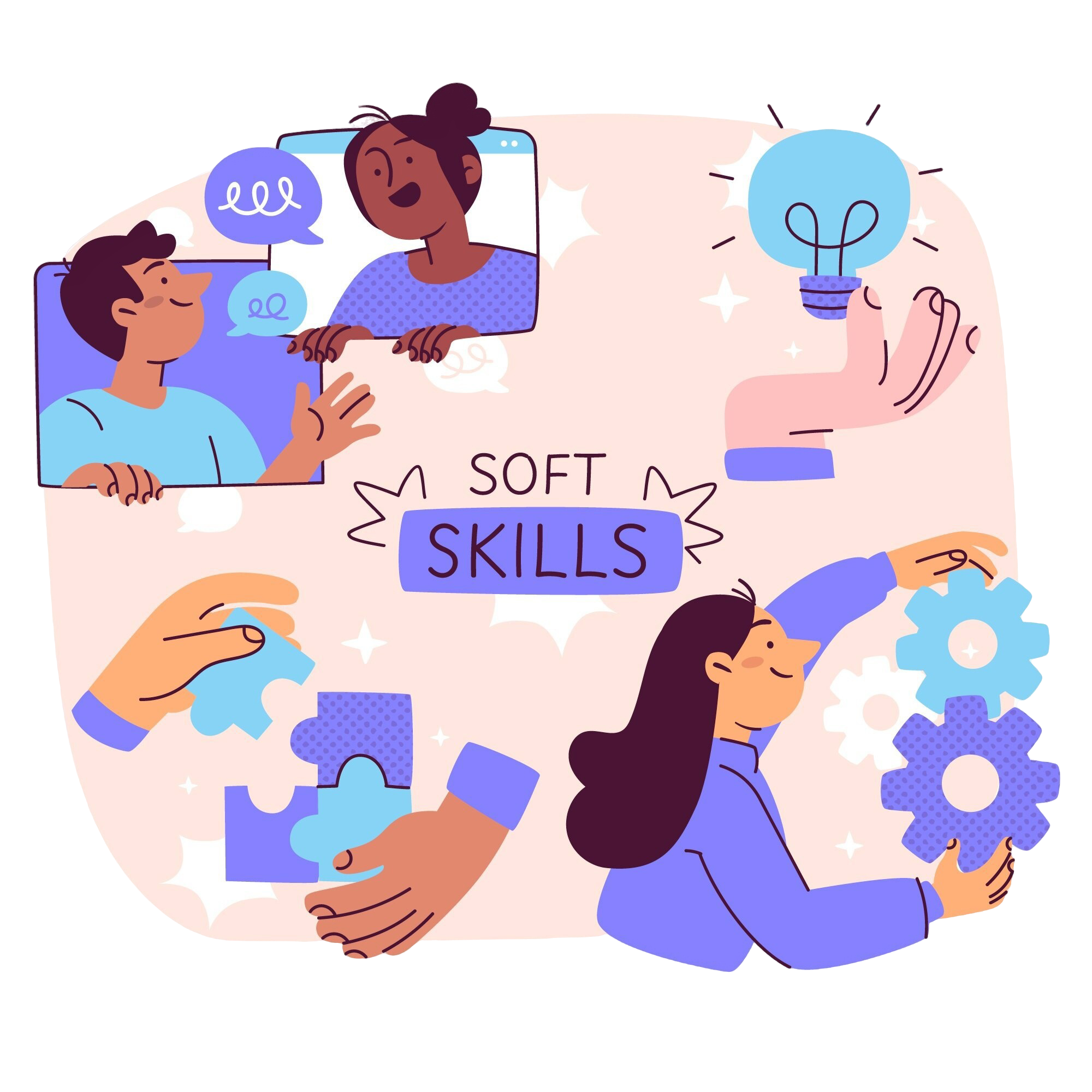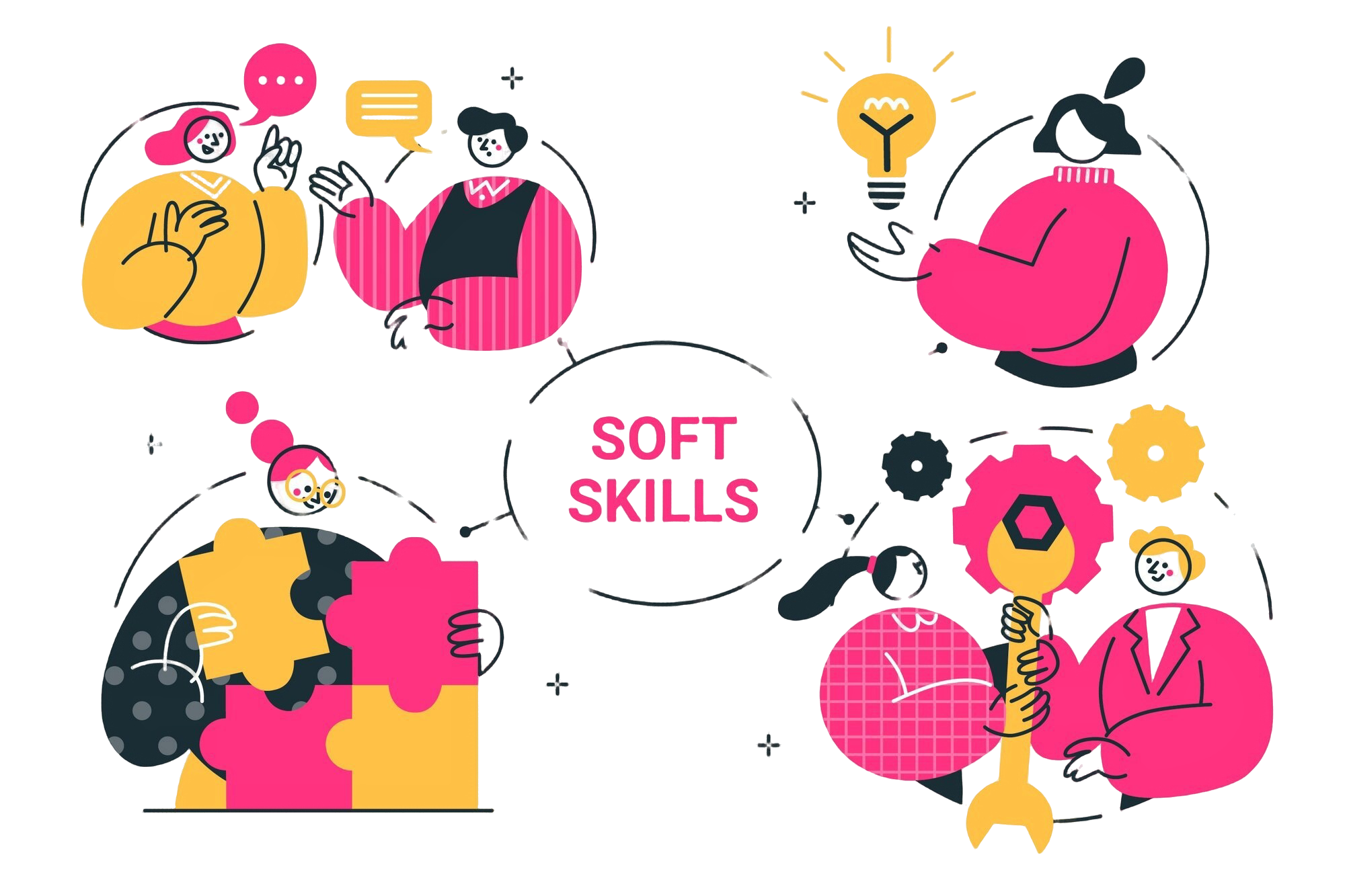.png)
Soft Skills
Soft Skills
Strengthens connections in both personal and professional life.
Develops skills for motivating, guiding, and inspiring teams.
Contributes to a positive work environment and personal fulfillment.
Efficient collaboration and problem-solving lead to better work outcomes.
Soft skills are transferable across various industries and job roles.
Get Free Consultation
Overview of Soft Skills
Soft skills refer to a set of personal attributes, behaviors, and social abilities that enable individuals to interact effectively and harmoniously with others. They are also known as "people skills" or "interpersonal skills" and are typically not technical in nature, unlike hard skills that are job-specific and learned through education or training. Soft skills are essential for creating a positive work environment, fostering teamwork, and contributing to both personal and professional success.
While technical skills are often specific to certain roles, soft skills are transferable across industries and job positions. Employers often prioritize soft skills because they enable employees to work well in teams, communicate effectively, and handle challenges with professionalism.
Key Soft Skills
1.Communication: The ability to express ideas clearly and listen actively to others.
2.Teamwork: Working collaboratively with others to achieve common goals.
3.Problem-Solving: Identifying challenges and developing effective solutions.
4.Adaptability: Being flexible and open to change in dynamic environments.
5.Time Management: Efficiently managing time to prioritize tasks and meet deadlines.
6.Emotional Intelligence (EQ): Understanding and managing your emotions, as well as recognizing emotions in others.
7.Leadership: Motivating, guiding, and supporting others to achieve team or organizational goals.
8.Conflict Resolution: Handling disagreements constructively and finding mutually beneficial solutions.
9.Creativity: Thinking outside the box and innovating in problem-solving or project development.
10.Critical Thinking: Analyzing situations objectively to make informed decisions.
Importance of Soft Skills
1.Workplace Harmony: Soft skills enable effective communication and collaboration, helping to maintain positive working relationships.
2.Career Success: Many employers value soft skills as much as, or more than, technical expertise, particularly for leadership roles and career advancement.
3.Conflict Prevention and Resolution: Soft skills help in managing conflicts calmly and efficiently, reducing stress and enhancing team performance.
4.Customer Relations: Professionals with strong soft skills can build better rapport with clients and customers, leading to higher satisfaction and loyalty.
5.Personal Growth: Developing soft skills enhances your emotional intelligence and overall ability to manage relationships, both personally and professionally.
6.Effective Communication: Clarity in communication prevents misunderstandings and encourages transparency in the workplace.
7.Team Collaboration: Employees who work well in teams contribute to collective problem-solving, innovation, and project success.
8.Problem-Solving: Employees with strong problem-solving skills can identify issues early and resolve them before they escalate.
9.Leadership: A good leader uses soft skills to inspire and motivate teams, ensuring everyone works towards a common goal.
10.Adaptability: In an ever-changing work environment, the ability to adapt to new situations is crucial for success.
Developing Soft Skills
Soft skills can be developed through conscious practice and learning. Here are some ways to improve them:
1.Self-awareness: Reflect on your strengths and areas for improvement.
2.Seek Feedback: Regularly ask colleagues and managers for constructive feedback.
3.Practice Active Listening: Focus on understanding others rather than just responding.
4.Engage in Team Activities: Work with others to enhance teamwork and collaboration skills.
5.Continual Learning: Attend workshops or online courses to improve communication, leadership, and emotional intelligence.
Frequently Asked Questions



